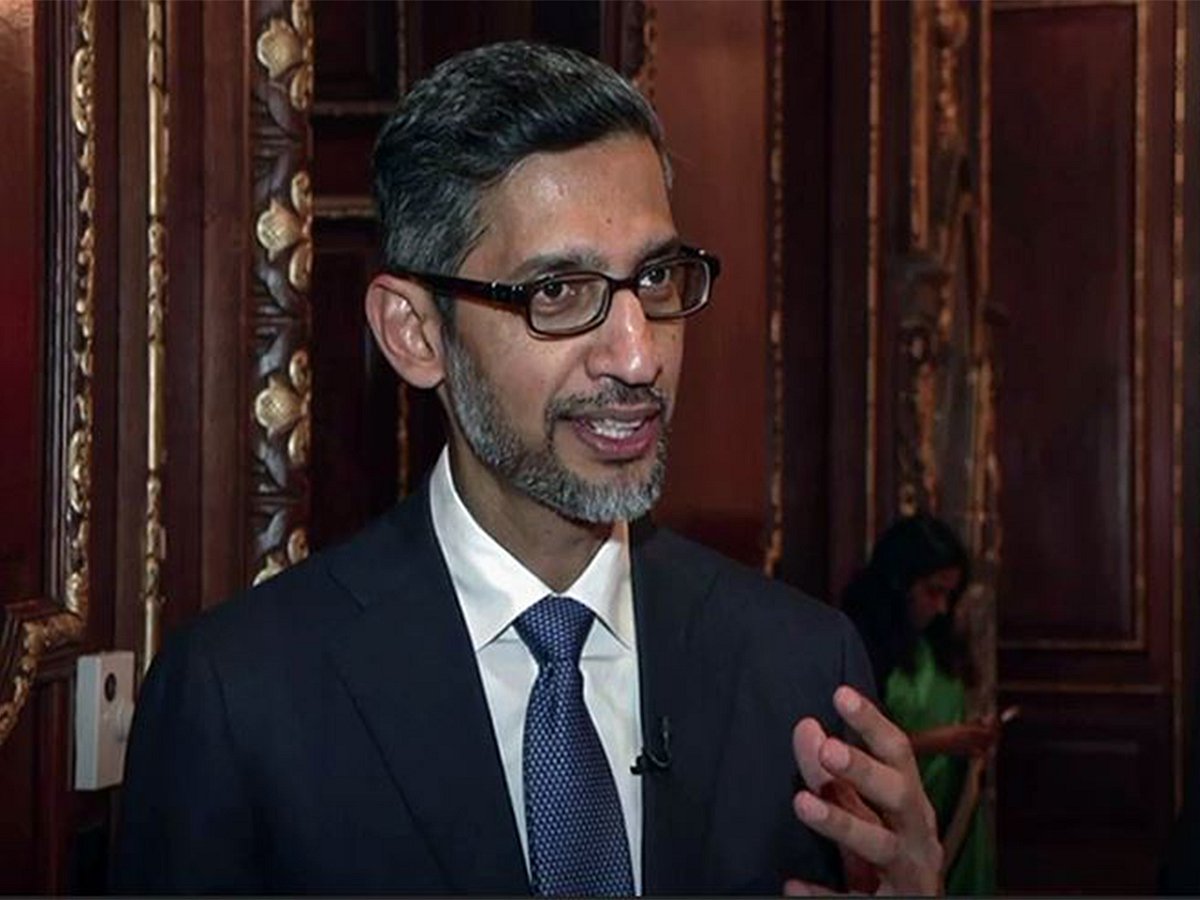AI boom or bubble: Google chief Sundar Pichai says no firm is safe
With markets jittery and computing costs soaring, Pichai urges realism about AI’s limits

Alphabet chief executive Sundar Pichai has warned that no company will be spared if the global artificial intelligence (AI) investment frenzy ends in a sharp correction, acknowledging signs of “irrationality” across the sector even as tech giants race to expand their AI capabilities.
Speaking to the BBC in an exclusive interview, Pichai said the dramatic surge in AI valuations and capital spending has created “an extraordinary moment” for the industry, but also raised fears of a bubble. “I think no company is going to be immune, including us,” he said, noting that a burst could hit the entire technology ecosystem.
His remarks come as global markets have shown signs of strain, with concerns about overheating in the AI sector triggering selloffs in recent months. Alphabet’s own share price has doubled in seven months, lifting the company to a $3.5 trillion valuation on the back of optimism over Google’s AI infrastructure, Gemini models and specialised superchips designed to compete with Nvidia’s hardware.
Investment cycles
While Pichai said Alphabet is well positioned because it controls its “full stack” of technologies — from semiconductors and cloud capacity to consumer platforms like YouTube — he conceded that investment cycles can “overshoot,” echoing former US Federal Reserve chairman Alan Greenspan’s famous warning of “irrational exuberance” before the 2000 dotcom crash.
“We can look back at the internet. There was clearly a lot of excess investment, but none of us would question whether the internet was profound,” he said. “I expect AI to be the same. So I think it’s both rational, and there are elements of irrationality through a moment like this.”
Energy concern
Another layer of concern involves energy. Pichai cautioned that AI’s surging computing requirements risk overwhelming existing infrastructure. AI workloads accounted for 1.5 per cent of global electricity consumption last year, according to the International Energy Agency, and could reach 200 gigawatts by 2030 — roughly the annual electricity use of Brazil, with half of the demand concentrated in the United States.
Geopolitical competition has triggered a global race to build massive data centres filled with tens of thousands of chips, each requiring large amounts of electricity and cooling. Pichai said governments and industry must accelerate development of new energy sources and grid capacity to keep pace.
The energy surge has already affected Alphabet’s climate goals. Pichai admitted the company’s own AI operations will delay progress toward its 2030 carbon-neutrality target, though he insisted the commitment remains in place.
AI's human impact
AI’s human impact was another key theme. Pichai said the technology will reshape the workforce, potentially automating high-level roles — including CEOs — while disrupting traditional occupations. “People will have to adapt,” he said. “It doesn’t matter if you want to be a teacher or a doctor… the people who will do well are the people who learn how to use these tools.”
Despite the risks, Alphabet continues to benefit from the boom, reporting more than $100 billion in quarterly revenue in October, fuelled by AI-driven products and infrastructure spending. Yet analysts remain cautious about the vast sums being poured into the sector, with JP Morgan chief Jamie Dimon warning that while AI investment will ultimately pay off, “some of the money will probably be lost.”
For Pichai, the lesson is clear: AI’s long-term impact is likely to be as profound as the rise of the internet — but the road there will be marked by volatility. “This is a moment that will define the next several decades,” he said. “But no one should assume they’re insulated from the risks.”
- with inputs from AFP
Sign up for the Daily Briefing
Get the latest news and updates straight to your inbox
Network Links
GN StoreDownload our app
© Al Nisr Publishing LLC 2026. All rights reserved.
